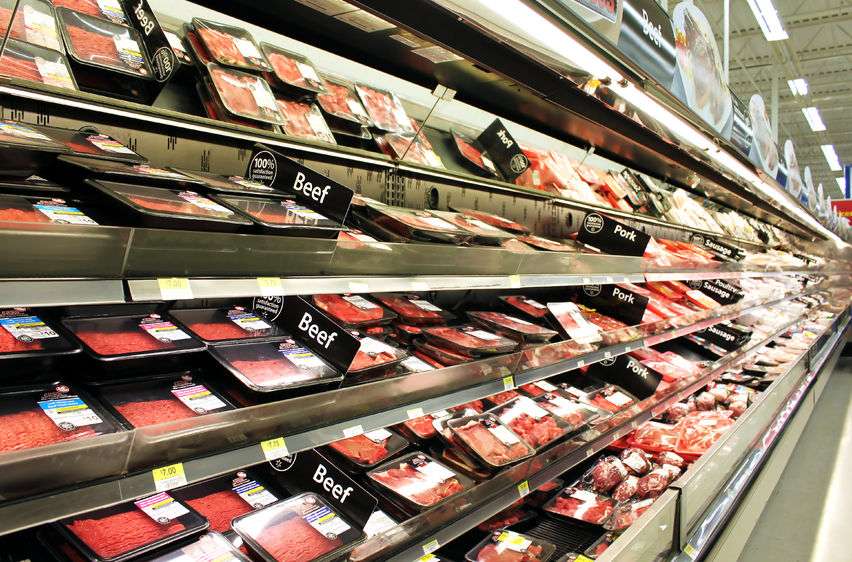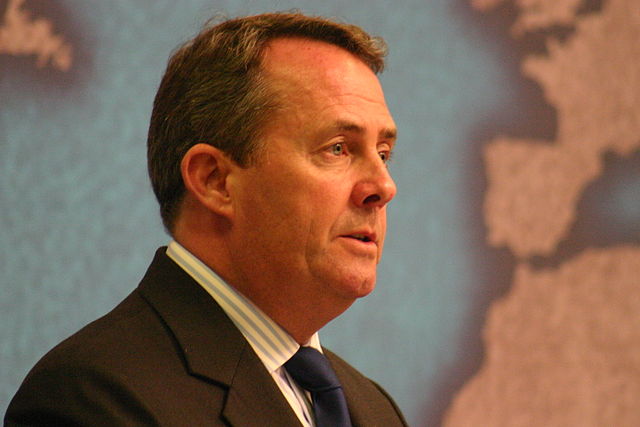Report warns inferior food imports could put British farmers at disadvantage

A new report has warned of the potential increase in cheaper, lower standard food imports to the UK which could put British farmers at a competitive disadvantage.
The House of Lords EU Energy and Environment Sub-Committee has today (25 July) published its report Brexit: farm animal welfare
The Committee warned that a potential increase in imports from countries operating lower farm animal welfare standards could undermine UK producers after Brexit.
The Committee heard evidence that the greatest threat to farm animal welfare standards post-Brexit would come from UK farmers competing against cheap, imported food from countries that produce to lower standards than the UK.
The Government’s wish for the UK to become a global leader in free trade is not necessarily compatible with its desire to maintain high animal welfare standards, the report warned.
The demand for high-welfare products is ultimately driven by whether consumers prioritise purchasing those products, at added cost, rather than buying cheaper, lower-welfare products.
The Committee found that consumers are not always aware of the difference between production systems or willing to pay a higher price for premium welfare products.
Chlorinated chicken
The report is released at a time when the UK Trade Secretary Dr Liam Fox is about to embark on a trip to the US to pave way for potential trade deals.
In the US, the government permits such practices as chlorinated chicken, which consists of dipping meat into chlorinated water to prevent microbial contamination.
In America, they argue that it is standard procedure which protects millions of consumers.

But this practice is banned in the EU, which fears the practice could actually worsen safety standards.
However, the farming industry in the US is expected to push for agriculture to be included in any food deal. It has insisted that Britain must come into line with the US.
The alarming prospect sparked criticism from the National Farmers Union (NFU), which warned that “public trust” in the high quality of British food was at stake.
The Committee said this could exacerbate the challenge to UK farmers' competitiveness arising from a potential increase in cheaper imports produced to lower welfare standards.
'Overwhelming reliance'
The report also examined whether the UK will have access to the staff needed on farms and in abattoirs after Brexit.
The report found that there is an 'overwhelming' reliance on non-UK EU citizens to fill crucial official veterinary positions in the UK, whilst the agricultural sector employs significant numbers of temporary and permanent farm workers.
Indeed, the British Veterinary Association has repeatedly highlighted the fact that non-British EU veterinary surgeons are 'critical' to the UK veterinary workforce.
About 80,000 seasonal workers a year pick and process British fruit and veg. Industry body British Summer Fruits has said that labour shortages are now the worst seen since 2004, and that fruits and salad could 'soar' by up to 50% if the UK cannot gain access to EU workers after Brexit.
The Committee called on the Government to ensure that the industry is able to retain or recruit qualified staff to fill these roles post-Brexit.
'Undeniable concern'
Lord Teverson, Chairman of the EU Energy and Environment Sub-Committee, said: “The UK has some of the highest farm animal welfare standards in the world and UK producers are rightly proud of those.
“We see no reason why Brexit should diminish those, as long as the Government is aware of the challenges ahead and acts accordingly.
“We heard evidence of undeniable concern that opening up the UK market to free global trade poses a number of issues.
“As we said in our last report, Brexit: agriculture, the Government may find it hard to reconcile its free trade ambitions with its commendable desire for preserving high farm animal welfare standards.
“We heard overwhelming support for farm animal welfare standards to be maintained or improved. To help achieve that, we urge the Government to secure the inclusion of high farm animal welfare standards in any free trade agreements it negotiates after Brexit.
“Whilst Brexit provides the UK with the unique opportunity to review and potentially improve farm animal welfare standards, the Government will need to consider the effect of increasing standards on the competitiveness of UK producers as well the future trading relationship with the EU.”








